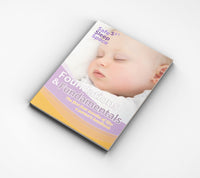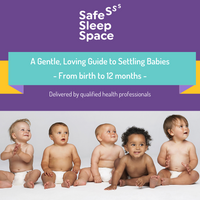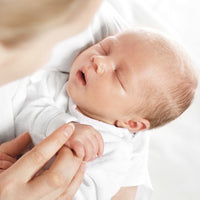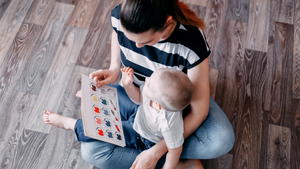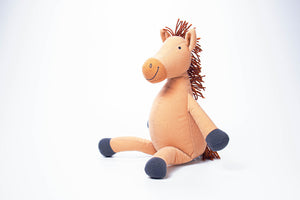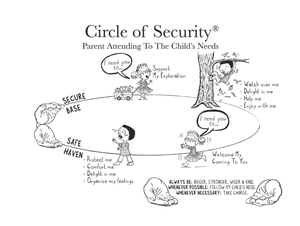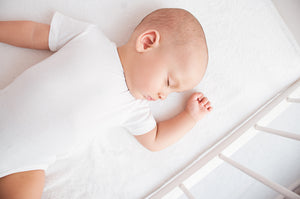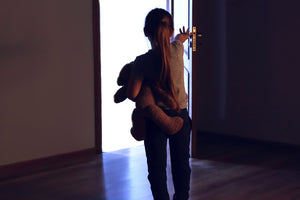Sleep Tip 7 - Sleep Associations!

The way your baby drifts to sleep is how they understand sleep happens. Whatever experience they have had, is what they learn to expect, or what they associate with going to sleep or drifting back to sleep between sleep cycles.
There are two types of sleep associations – dependent and independent, and both can have an impact on your baby’s ability to move from one sleep cycle to another.
Dependent sleep associations rely on you as a parent or carer to maintain them – such as cuddling, feeding, driving around in a car, rocking or using a dummy. If your baby stirs between sleep cycles, they are dependent on you to recreate the experience to help them drift back to sleep. And this could be exhausting if they are waking every 20 - 40 minutes overnight.
Independent sleep associations are fantastic as they don’t require your involvement and include things such as a darkened room, white noise or music. So ideally, we try to encourage the use of independent sleep associations over dependent ones.
Essentially a sleep association is what babies become accustomed to when they go to sleep. An example would be a ride in the car, a cuddle or some other prompt which helps them go to sleep. Then when they reach their next their next sleep cycle, which is about 45 minutes later (give or take) they simply want to experience the same sleep association again to get back to sleep.
A dummy can also be a kind of dependent sleep association for some babies. If the baby falls to sleep sucking on a dummy they may expect it to still be in their mouth when they wake up between their sleep cycles.
If they are not old enough to put their own dummy back in their mouth, they’re likely to cry for it. You may like to think about only using a dummy as a comforter, or pacifier when your baby is calm and ready to drop off to sleep. Another option is to stop using the dummy if your baby is waking repeatedly overnight, needing it to be replaced in their mouth.
As a baby grows and settles into a sleep pattern, dependent sleep associations can become a hindrance. This does not mean that we don't respond to feeding cues.
It is so important that we respond to our baby’s nutritional needs by feeding them overnight for as long as they need to be fed - it is biologically normal for babies to wake for feeds overnight!
If a baby only learns to go to sleep relying on the dependent association they don’t learn skills in self soothing. This means that when they wake through the night, they look for the same cues or prompts to go back to sleep again. They inevitably wake and will need the same dependent association as they had when they were placed into their cot.
This doesn't mean leaving the baby or toddler to cry!
For a baby, being helped to go to sleep is interpreted as a good thing. Their parent is close and hasn’t left them and they feel safe and secure.
As our young babies continually cycle through stages of light and deep sleep, and generally wake up as they transition through these changes, parents and carers who can identify any dependent sleep associations and make changes will help babies learn self soothing.
Need more help? Check out our Sleep Consultations [here] or our App Rockabub [here] or stay informed on our Facebook page
This article was written by Cindy Davenport, Clinical Director, MCHN, RN, Safe Sleep Space
